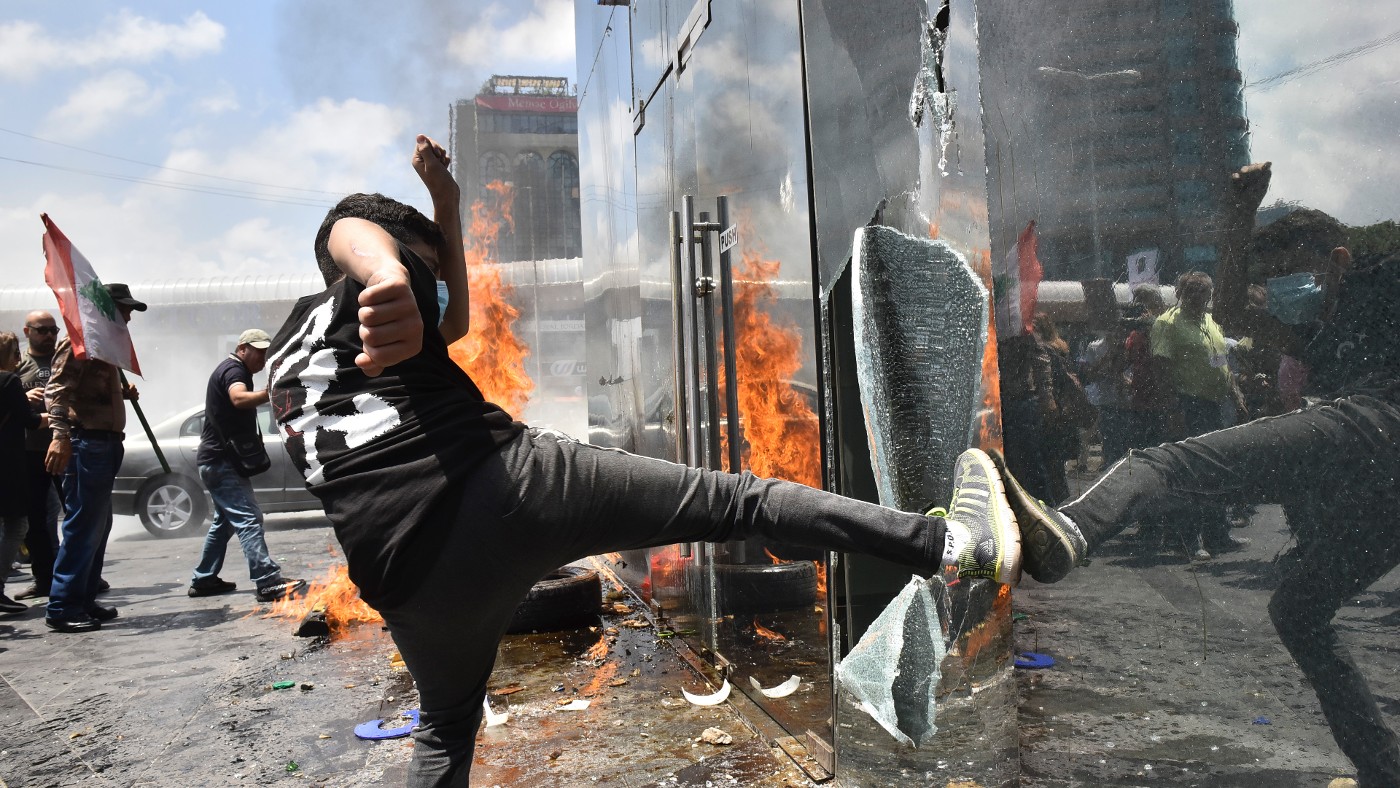US elite crime-fighting units: a recipe for trouble?
Tyre Nichols’ death in Memphis highlights the dangers of using of elite crime-fighting units

A free daily email with the biggest news stories of the day – and the best features from TheWeek.com
You are now subscribed
Your newsletter sign-up was successful
When Cerelyn Davis became Memphis police chief in 2021, she knew something had to change, said Jesus Jiménez in The New York Times. Homicides in the city were soaring: they hit a record 346 that year; by comparison, New York City, which is 13 times larger, had fewer than 500. Incidents of late-night drag racing and stunt driving were causing mayhem.
Davis, the first African-American woman to lead the department, responded by setting up a specialist police unit named Scorpion – or Street Crimes Operation to Restore Peace in Our Neighbourhoods. It deployed some 40 officers to crime hotspots, tasked with targeting offenders and seizing cars from dangerous drivers.
‘Police not running amok’
The strategy worked well to start with, although complaints grew about the unit’s alleged heavy-handed tactics. Then came the shocking killing of Tyre Nichols last month, by five Scorpion officers, following a traffic stop. The unit has now been disbanded. It was an appalling incident, said Jason L. Riley in The Wall Street Journal, but an untypical one. Contrary to the impression you get from the media, America’s cops are not running amok. A 2021 report noted that police killings of African Americans have declined by “60%-80%” since the late 1960s.
The Week
Escape your echo chamber. Get the facts behind the news, plus analysis from multiple perspectives.

Sign up for The Week's Free Newsletters
From our morning news briefing to a weekly Good News Newsletter, get the best of The Week delivered directly to your inbox.
From our morning news briefing to a weekly Good News Newsletter, get the best of The Week delivered directly to your inbox.
A 2018 study found that officers used force in the course of arrests less than 1% of the time. In New York City, police shootings have fallen by about 90% since the 1970s. Journalists home in on cases of brutality, but residents of poor communities “know better than anyone that criminality remains a much bigger problem than policing”.
‘Rogue cops with a cowboy mentality’
What Nichol’s death has proved, yet again, is that creating “elite” crime-fighting units is a recipe for trouble, said Radley Balko in The New York Times. Such units breed “rogue cops with a cowboy mentality”. We’ve seen it with Detroit’s Stop the Robberies, Enjoy Safe Streets programme (Stress); with the LAPD’s Community Resources Against Street Hoodlums programme (Crash); and with the NYPD’s Street Crimes Unit (Motto: “We own the night”).
These units inevitably become “petri dishes for cultures of impunity”, agreed Christy E. Lopez in The Washington Post. Politicians like them because they deliver quick results: arrests, gun confiscations. But history shows that community-based policing is more effective in the long term than unleashing what are known as “jump out boys” on poor neighbourhoods.
A free daily email with the biggest news stories of the day – and the best features from TheWeek.com
-
 How the FCC’s ‘equal time’ rule works
How the FCC’s ‘equal time’ rule worksIn the Spotlight The law is at the heart of the Colbert-CBS conflict
-
 What is the endgame in the DHS shutdown?
What is the endgame in the DHS shutdown?Today’s Big Question Democrats want to rein in ICE’s immigration crackdown
-
 ‘Poor time management isn’t just an inconvenience’
‘Poor time management isn’t just an inconvenience’Instant Opinion Opinion, comment and editorials of the day
-
 Tourist sparks bomb alert after accidentally ordering a 'grenade'
Tourist sparks bomb alert after accidentally ordering a 'grenade'Tall Tales And other stories from the stranger side of life
-
 Earring lost at sea returned to fisherman after 23 years
Earring lost at sea returned to fisherman after 23 yearsfeature Good news stories from the past seven days
-
 Bully XL dogs: should they be banned?
Bully XL dogs: should they be banned?Talking Point Goverment under pressure to prohibit breed blamed for series of fatal attacks
-
 The spiralling global rice crisis
The spiralling global rice crisisfeature India’s decision to ban exports is starting to have a domino effect around the world
-
 Netanyahu’s reforms: an existential threat to Israel?
Netanyahu’s reforms: an existential threat to Israel?feature The nation is divided over controversial move depriving Israel’s supreme court of the right to override government decisions
-
 A country still in crisis: Lebanon three years on from Beirut blast
A country still in crisis: Lebanon three years on from Beirut blastfeature Political, economic and criminal dramas are causing a damaging stalemate in the Middle East nation
-
 Farmer plants 1.2m sunflowers as present for his wife
Farmer plants 1.2m sunflowers as present for his wifefeature Good news stories from the past seven days
-
 Ghana abolishes the death penalty
Ghana abolishes the death penaltyfeature It joins a growing list of African countries which are turning away from capital punishment